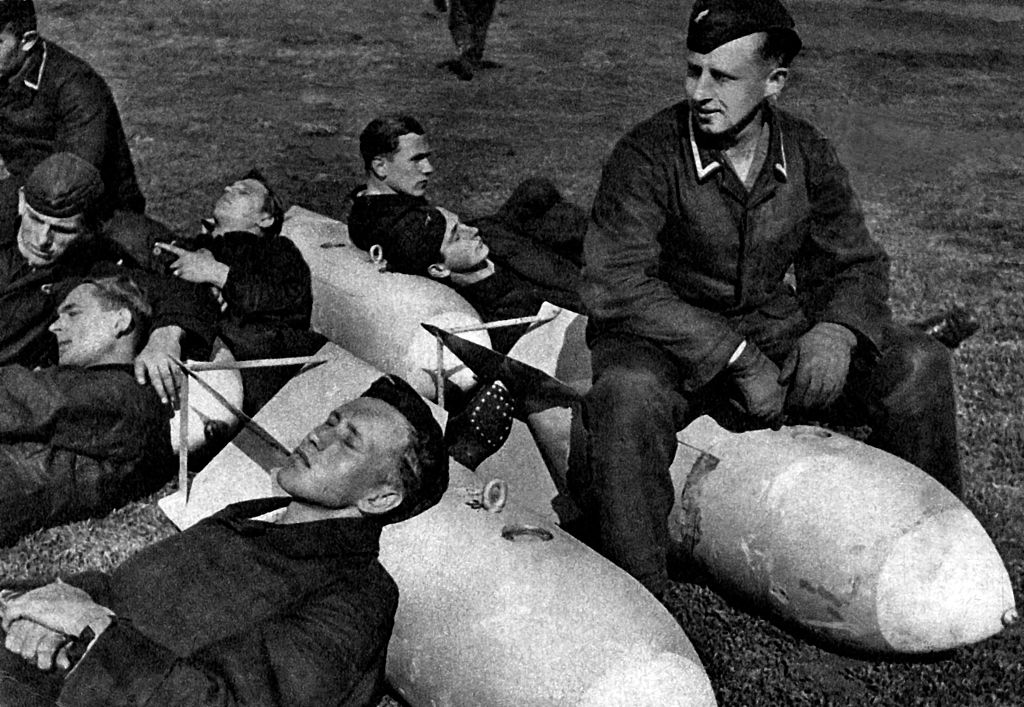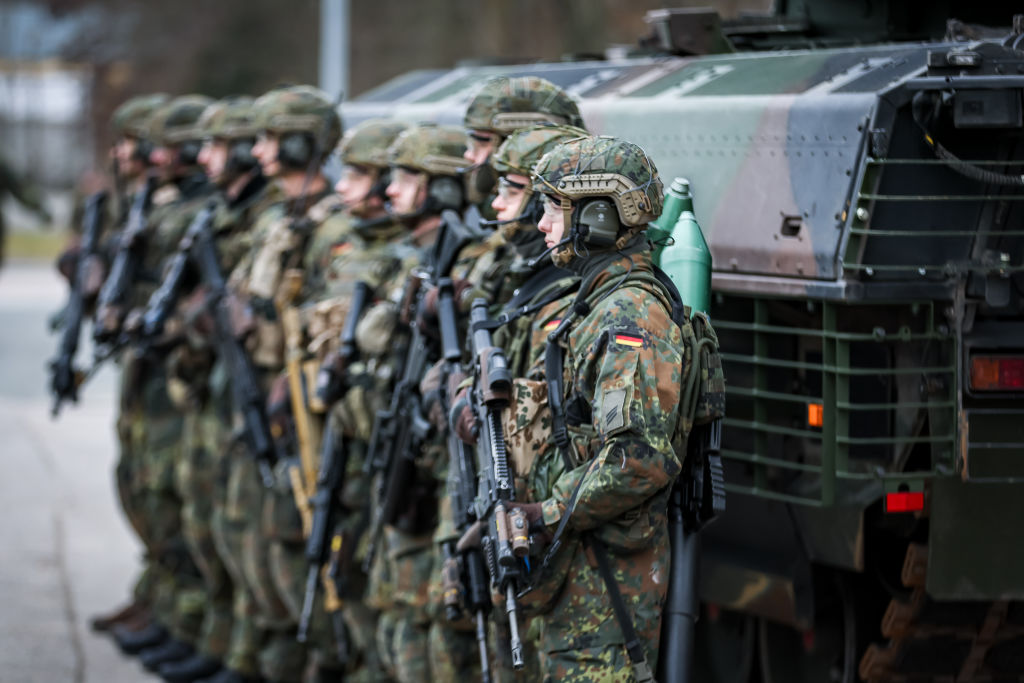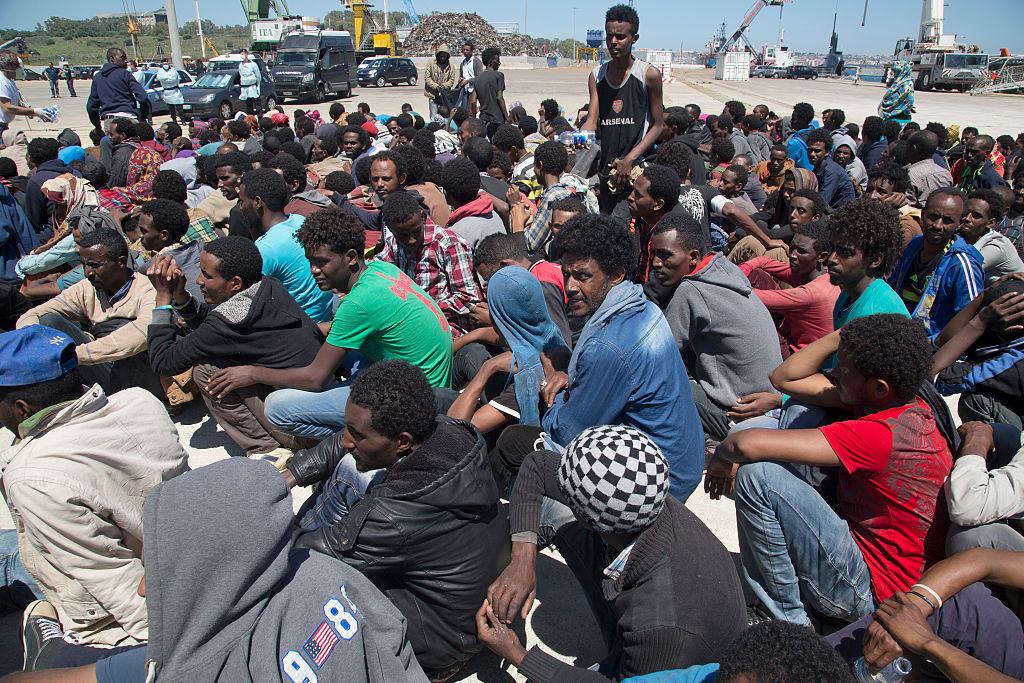The prospect of a second presidential term for Donald Trump has horrified European establishmentarians, who have long portrayed him as a threat. This portrayal has taken various forms, though chief among them was fearmongering over his threats to force Europe to defend itself.
This is because the European Union is, as things stand, literally incapable of defending itself. Many Europeans, and perhaps Americans, are not aware of this fact. They imagine that Brussels, if it got its act together, has the resources to muster a real defence. But it does not.
On paper, this would seem to be an over-the-top statement. The EU has around 450 million people. It has a nuclear-armed power (France), a spectacular firearms and weapons industry (many Americans, including yours truly, grew up firing German guns), and a long history of military heroes.
But none of this has been brought to bear in any real way, on a national or supranational level, because it was simply unnecessary. America’s military budget is immense; at over $900 billion, it is by far the largest in the world. If it were to be cut in half, it would still be over $200 billion more than the second-biggest spender, China, and would leave the US with over $400 billion to do whatever with: jumpstart nationalised healthcare, begin free post-secondary education or simply cut taxes even lower. If many of Europe’s militaries cut their budgets in half, they would simply have no militaries at all.
The US can do both because of what economists call “guns and butter.” A country chooses to spend money on “guns” (national security) or “butter” (social safety nets). As the wealthiest country in the world, America can and has spent on both. It has not done so evenly, to be clear, but it could do so if it had the political will.
The European Union, by contrast, spends more on butter than guns. This had the positive effect of creating truly fantastic social safety nets; but the problem is that, to get those safety nets, national and Brussels-based establishmentarians levied immense taxes on Europeans. Consider an average median American salary, about $48,000 a year, or $4,000 (€3,700) a month. In some places in the EU, that salary will be taxed at high levels. In Austria, for example, a €3,700 salary nets citizens about €2600 after taxes. In Belgium, it is even less.
Now again, that taxation has brought lots of spending on butter, an objective good – but there is nothing left for guns. Some countries, like Viktor Orbán’s Hungary and Poland, have seen this issue coming and have sought to rely more upon themselves, with the former building up a safety net which encourages families to have children and the latter seeking to build Europe’s strongest military.
But most European leaders took the easy path, hoping the American gravy train would roll on eternally. Couple with the Brussels establishmentarian love of regulation (see former EU regulator Margaret Vestager’s desire to create a “regulatory superpower”), investment – and therefore the potential for larger economic growth – was hindered.
And this is where the issue lies, and it explains why establishmentarians are so afraid of Trump: because he, or one of his ideological successors, will eventually bring the gravy train to an end. And Brussels will not be able to do anything to stop it.
That’s because at that point, European establishmentarians will have four options. The first will be to raise taxes further to finance national or EU-based militaries. But that will essentially nuke the economies of many countries. You simply cannot increase the financial pressure on an overtaxed population further.
The second choice would be to cut spending on butter. But this, because of bureaucratic desires to kick the can down the road, is politically impossible. European citizens simply expect to have mostly free healthcare and free or very cheap secondary education. The idea of paying copays for doctor’s visits is, in some of the more liberal parts of the EU, akin to violating the Geneva Convention. Establishmentarian European leaders have long massaged their populations by making fun of America’s supposed lack of social spending. If those same leaders turn around and suddenly say that European social spending must be cut, those same leaders will find themselves collecting unemployment.
The third option would be simply to deficit spend. But the kind of money necessary for real defence spending cannot be acquired that way, and some European nations, such as Germany, have laws against such deficit spending anyway. It would also, like the first option, create the foundations for a long-term economic disaster.
The fourth option would be simply not to have real defence spending, continue with spending on butter, and to hope for the best. But countries and civilisations which adopt a “hope for the best” approach to military spending often find that the best is not coming. Even if Trump loses, the Republicans have now become a party firmly against defending Europe while European establishmentarians spend on free healthcare and mock Americans. Hoping that the Republican Party never wins again, or that Democrats continue on with President Joe Biden’s 20th century ideas of NATO being “sacred,” would be a foolish bet.
In short, European establishmentarians have, in seeking to avoid making the tough decisions, trapped themselves in political muck. They are just hoping no one notices.





Big apes, but not small humans, come under protection of Spanish law